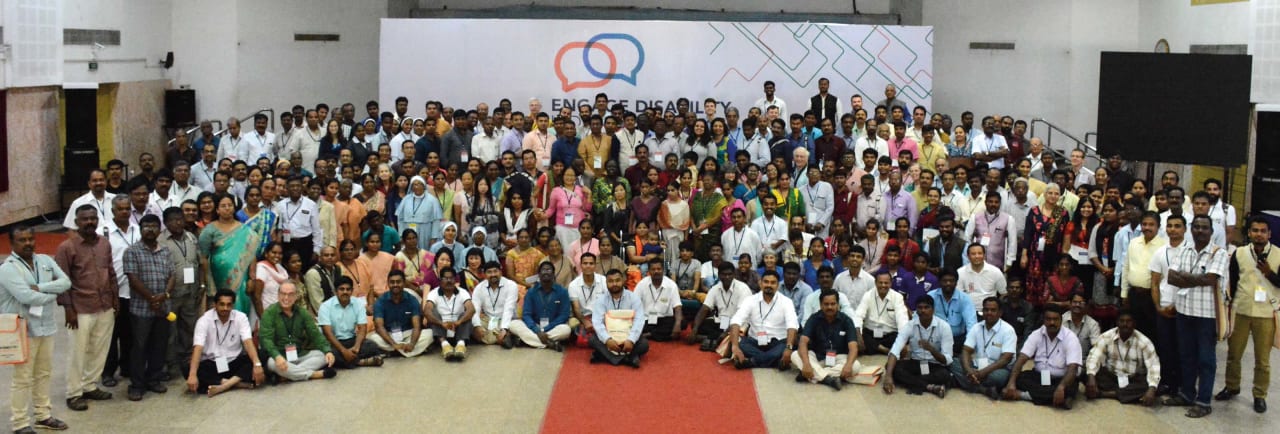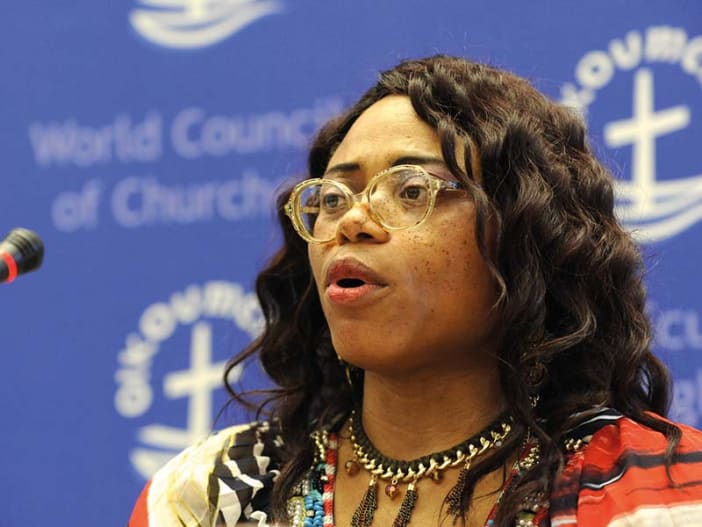Engage Disability is a network of organisations, churches and individuals in India. We are working to enhance inclusion of people with disabilities in Christian communities, and to empower people with disabilities to take their rightful place in society.
It all started when a pastor visited one of the Emmanuel Hospital Association (EHA) disability projects, looking for help for his daughter with cerebral palsy. By spending time with him, we learnt how lonely the life of a carer can be, even in the church. We spoke to others with similar concerns and all agreed that the opposite should be true. The church should be a place of love and acceptance. Not isolation and, sometimes, discrimination.
Bringing people together
Having worked with people with disabilities for years, we knew what was needed. Not specialised knowledge or complicated programmes, but simply opportunities for people to interact with people with disabilities, and their families.
We set out to do three things:
- create a platform where people with disabilities, their families, church members and others could listen to and learn from each other
- develop resources to equip and guide churches in their response
- offer training to help church leaders and members respond sensitively and realistically to the needs in their churches and communities.
In 2014 we organised a national conference – the first of its kind in India – which was attended by more than 500 people. As delegates shared their ideas and experiences, many people with disabilities spoke powerfully about what life is like for them.
Regional hubs were formed and each is now a centre for training, sharing, and advocating for change. Tried-and-tested ideas have been gathered into a toolkit to help churches engage with, and serve alongside, people with disabilities
What we have learnt
Local ownership is crucial and we were delighted when a second national conference was hosted by a church, not a development organisation. The idea is not to keep the network running forever, but to empower local leaders to keep the vision alive.
The involvement of people with disabilities right from the start has been key to the success of the network. Their voices have been clearly heard, leading to a greater level of understanding and a desire to see people with disabilities included in every area of society.
Discussion questions
- Are the voices of people with disabilities being heard in your church and community?
- If not, can you find a way to bring together people with disabilities, their carers and community leaders (eg pastors, teachers and government representatives) so they can talk?
- What do you think the outcome of such talks might be?
Further reading
Engage Disability Toolkit
This toolkit covers all aspects of disability inclusion including health, education, empowerment and employment. Download free of charge from www.engagedisability.com/resources Alternatively email [email protected]
To find out more, visit http://engagedisability.com









